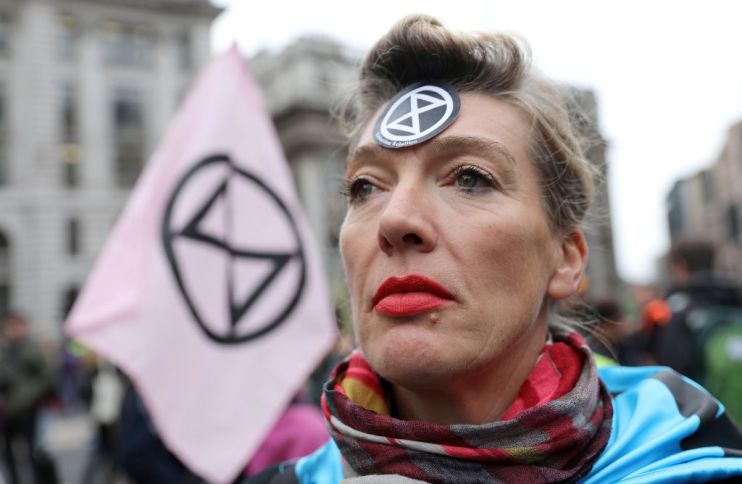Climate activists: Prepare to win the peace after the coronavirus war

Winston Churchill may have won the war, but Clement Attlee won the peace.
The pill that Churchill swallowed was bittered by the fact that his victory had paved the way for Attlee’s. Without the spirit forged by the collective efforts of wartime, there would have been little appetite to build Attlee’s welfare state when peace came.
Read more: Businesses urged to fight climate change and cut costs
The moments after great crises are opportune. It was a signal failure of the post-2008 era that so little change followed.
To borrow a phrase, the kaleidoscope was shaken and the pieces thrown into flux, yet somehow they all fell back where they had started. Government-as-usual followed for eight years, and in the process the seeds of the revolutions of 2016 were sowed, when anger ruled the ballot box.
Many have turned in this current moment to an ancient Persian adage: “this too shall pass”. For now, ensuring that it passes with as little pain as possible is rightly the sole priority of our government, and of us all in fact. Many have mocked the Prime Minister’s pretensions in the past, but this will indeed be an effort and achievement of Churchillian proportion.
When it does pass, however, we will find ourselves facing another post-war opportunity, and this time we must not squander it. Just like the Second World War — and unlike 2008 — overcoming coronavirus will have been a great national effort.
Read more: Maintaining relationship health while at home
We will all have made individual sacrifices for the good of our wider community. The crowding of London markets we witnessed last weekend will have proved an early aberration. Local mutual aid groups, food bank volunteering, and strict adherence to government advice will have dominated.
For one group, this moment must be considered unmissable: those engaged in the climate fight, advocating for the huge changes we must make in order to prevail against environmental crisis. The parallels are clear. Climate change is another international challenge that relies on the combination of widescale individual behavioural change, bold policymaking, and groundbreaking science.
Behaviour change is particularly hard. Shaking people out of norms is extremely difficult to achieve, as we have seen with the early hitches in following government advice on social distancing. But behaviour is changing now. And once the old mould has been broken, there will be a unique opportunity to fit us back into a new one in future, one in which we have become more considerate of our impact on this planet’s resources.
The fight against climate change will differ from today’s fight against coronavirus, of course. The response to coronavirus is the result of a clear and immediate threat to hundreds of thousands of lives, in every country across the world. While Extinction Rebellion activists have tried to lay claim to such urgency, they have never been able to summon it. The threat of climate change is real, but far less visible even than today’s “invisible enemy”.
It is also treacherous territory to appear to turn today’s crisis to your own cause, however important that issue might be. In doing so, one risks appearing at best naive to the scale of the challenge we face today, and at worst exploitative of it.
But there will come a time, in the not too distant future I hope, when we have vanquished this enemy. Then, a nation of individuals will have seen what happens when they act as one.
If we allow that spirit to dissipate, if we allow the kaleidoscope to be shaken but the pieces to fall back in place, we will have failed again to win the peace that followed the war.
Josh Williams is a speechwriter and director at The Draft.